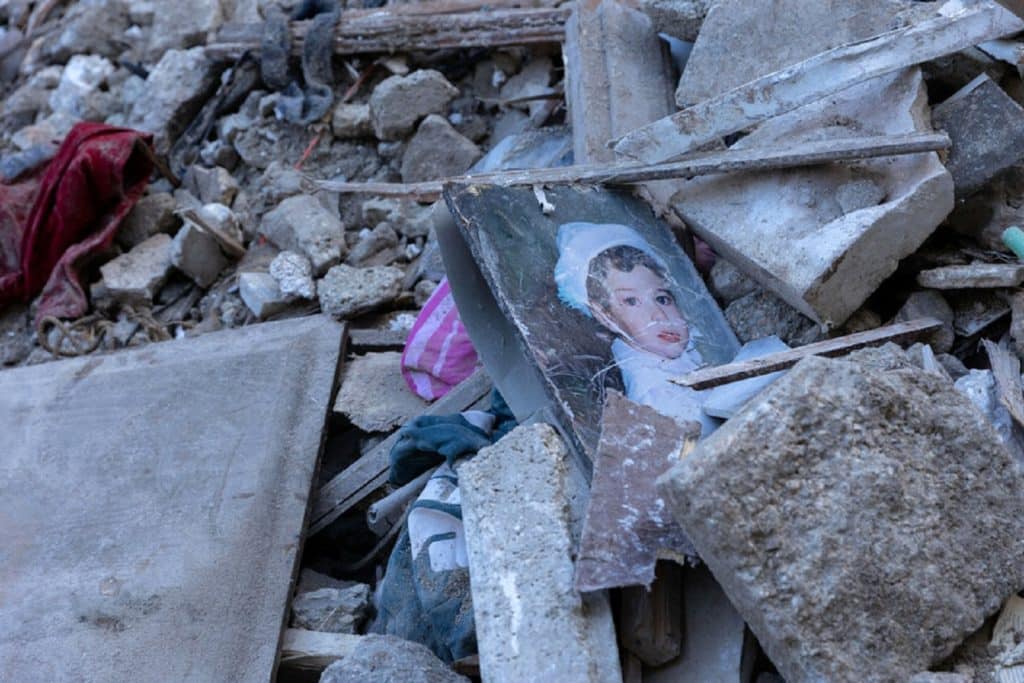For more than one week, the world has watched on horrified by news footage of the catastrophic earthquakes in Turkiye and Syria – grieving families, scenes of death and utter devastation; entire suburbs and homes reduced to rubble; and vital infrastructure such as hospitals and schools destroyed.
This is a disaster on a scale that few of us are able to comprehend. With the UN predicting the death toll will surpass 50,000 and the World Health Organization calling it the worst natural disaster to have hit Europe in the last century, hopes for finding any more survivors are fast fading.
Rescue workers and aid groups are now turning their attention to the complex long road to recovery ahead.
At Plan International, the global humanitarian organisation I work for, we are extremely concerned about the toll that yet another crisis will take on children in the region, particularly girls and their families. With schools and essential services closed, children, especially those who have lost parents or who have been separated from family and displaced from homes, are left without their usual support frameworks and are more vulnerable to abuse and exploitation. They are cold, hungry, exhausted and terrified.
Our experience shows that children, especially girls, women and the poorest families, are most at risk of exploitation in a disaster like an earthquake. Their protection and the safety must be a top priority.

I can’t help but reflect on the stark contrast to children back here in Australia, who over the last two weeks have returned from summer holidays back to school.
Years ago, when I was working as a high school teacher, this first couple of weeks of school was about getting to know the kids in my classes. I’d have six classes of 30 students each – 180 names to learn as quickly as possible. Our mission was to get kids excited about learning; I can’t describe the pride in seeing students grow and thrive throughout the year, expressing ideas more confidently and developing a genuine love of learning.
It’s a privilege and joy to be part of a student’s learning journey, one I did not take or leave lightly. It is also every child’s fundamental right. But for the 222 million children affected by crises across the globe – including the hundreds of thousands of children in Turkiye and Syria who survived the earthquakes last week but suffered unthinkable loss – that right is under serious threat.
Over the past five years, we’ve seen a significant increase in the number of children who are at risk of missing out on their education because of armed conflict, forced displacement, climate induced disasters and protracted crises. We have seen a similar trend in Australia, with significant flooding and fires over the last few years disproportionately impacting First Nations children.
In 2016, 75 million children were affected by crisis, but now that number has blown out to 222 million. A whopping 78.6 million of those children are out of school, while 120 million are in school but struggling with basic literacy and numeracy. Adolescent girls in conflict zones are 90 per cent more likely than their peers in non-conflict settings to be out of school.
Put simply, their education cannot wait.
For 14 year old Hefeza in Cox’s Bazaar – the world’s largest refugee camp in Bangladesh – her entire high school life has been spent in a refugee camp. She can’t wait for an educatiop; she needs access to it now.
For Naomi in the Solomon Islands, countless school weeks have been missed due to cyclones – increasing in frequency and intensity without climate action. Naomi has a right to be in a school equipped for climate resilience and safety – minimising the time it takes to get back to school after a cyclone.
This week in Syria, Layla doesn’t know how much school she’ll miss. Her friends and family are separated right now and school seems a distant memory.
The power of education during crises for children, especially girls, cannot be underestimated.
Again and again children and young people tell us that getting back to school is one of their top concerns post-disaster.
The power of education during crises for children, especially girls, cannot be underestimated. Beyond curriculum, schools also give children a sense of normalcy during crises, and hope for their futures. It can equip girls with the skills to lead and participate in peace building initiatives in their communities and countries, and call for the changes they want to see.

The Australian Government has the opportunity to support girls affected by crisis access a quality and inclusive education. Education Cannot Wait (ECW) is the United Nations global fund for education in emergencies and protracted crises. They support and protect every child’s right to access an education. We’re calling on the Australian Government to do their part and commit $24 million over three years.
This fund kicks off its replenishment today in Geneva. We’ve already seen other countries step up and protect children and girls’ rights to an education – Germany has pledged 210 million Euros, Canada $87.5 million and the US $43 million. It’s time for the Australian Government to do the same.


